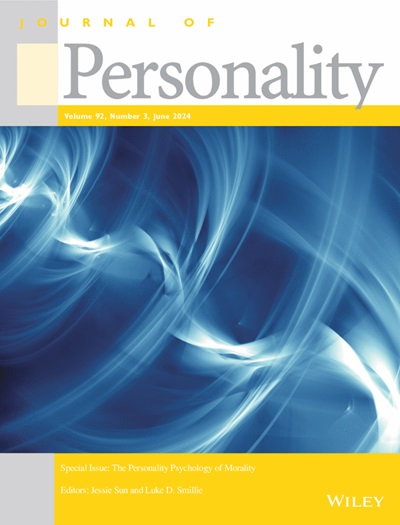Heterogeneity of Effects in a Prosociality‐Based Intervention to Reduce Loneliness and Increase Social Contact
IF 2.7
1区 心理学
Q1 Psychology
引用次数: 0
Abstract
ObjectiveThis study evaluates the effects of an act of kindness intervention on increasing daily social contact and reducing loneliness among community adults experiencing loneliness. It also explores heterogeneity in effects and potential moderators, including individual differences in baseline social health and intervention implementation.MethodIn a randomized controlled trial, 208 adults were randomly assigned to perform daily acts of kindness for others (Kindness condition) or take a short break for themselves (Control condition) for 2 weeks. Dairy assessments of loneliness and social contact were collected 3 days before and after the intervention.ResultsWe did not find consistent average effects. Although loneliness decreased in the Kindness condition, the reduction was not significantly greater than in the Control condition. In contrast, a group difference was observed in social contact, which remained stable in the Kindness condition but declined in the Control condition. Notably, significant individual differences emerged: the intervention was more effective for participants with higher baseline social anxiety and loneliness, and when a greater proportion of prosocial acts targeted weak social ties and a smaller proportion targeted strangers.ConclusionsThese findings highlight the importance of identifying individual differences—for whom and under what conditions prosociality‐based interventions are most effective.基于亲社会性的干预减少孤独感和增加社会接触效果的异质性
目的评价善意行为干预对社区孤独感成年人增加日常社交接触和减少孤独感的影响。它还探讨了影响和潜在调节因素的异质性,包括基线社会健康和干预实施的个体差异。方法采用随机对照试验,208名成年人随机分为两组,一组为他人做善事(善意组),另一组为自己做短暂休息(对照组),为期两周。在干预前后3天收集孤独感和社会接触的乳制品评估。结果我们没有发现一致的平均效应。虽然孤独感在友善组有所减少,但减少的幅度并不比对照组大。相反,在社会接触方面存在群体差异,在友善条件下保持稳定,而在控制条件下下降。值得注意的是,显著的个体差异出现了:干预对基线社交焦虑和孤独感较高的参与者更有效,当亲社会行为的更大比例针对弱社会关系而较小比例针对陌生人时。这些发现强调了识别个体差异的重要性——对谁以及在什么条件下亲社会性干预是最有效的。
本文章由计算机程序翻译,如有差异,请以英文原文为准。
求助全文
约1分钟内获得全文
求助全文
来源期刊

Journal of Personality
PSYCHOLOGY, SOCIAL-
CiteScore
9.60
自引率
6.00%
发文量
100
期刊介绍:
Journal of Personality publishes scientific investigations in the field of personality. It focuses particularly on personality and behavior dynamics, personality development, and individual differences in the cognitive, affective, and interpersonal domains. The journal reflects and stimulates interest in the growth of new theoretical and methodological approaches in personality psychology.
 求助内容:
求助内容: 应助结果提醒方式:
应助结果提醒方式:


